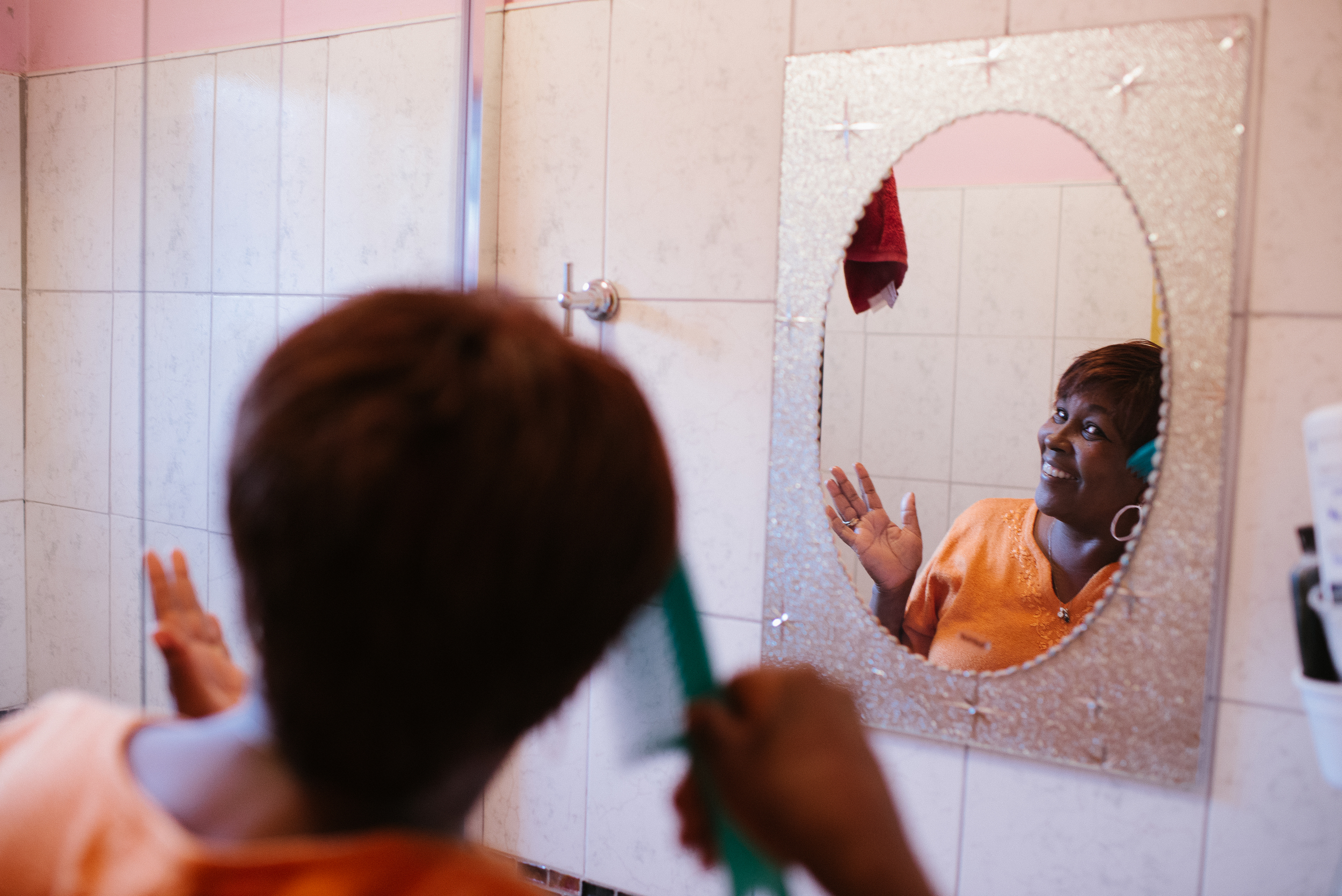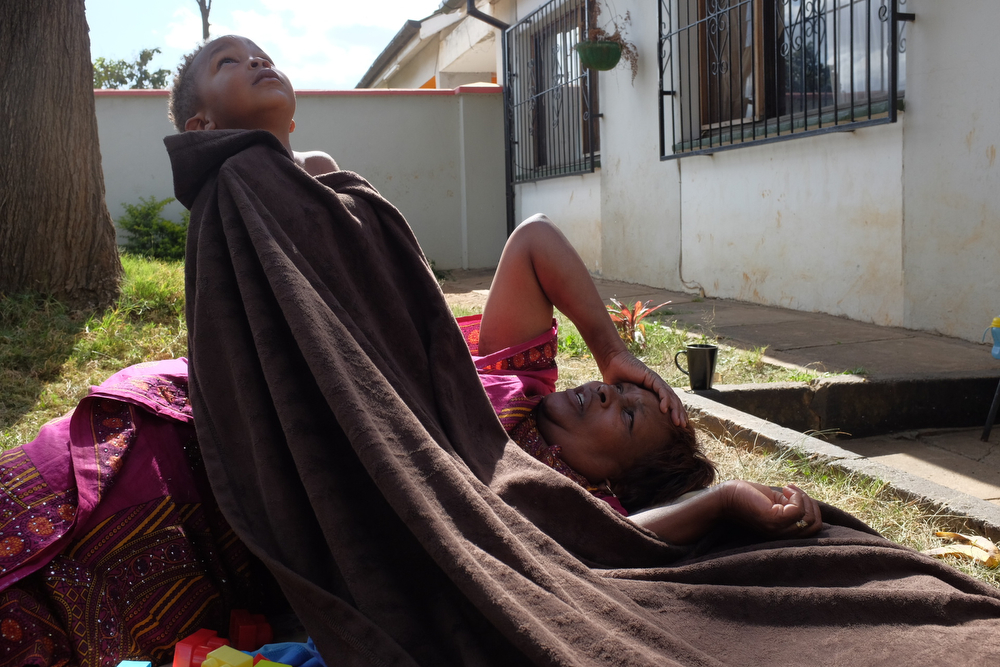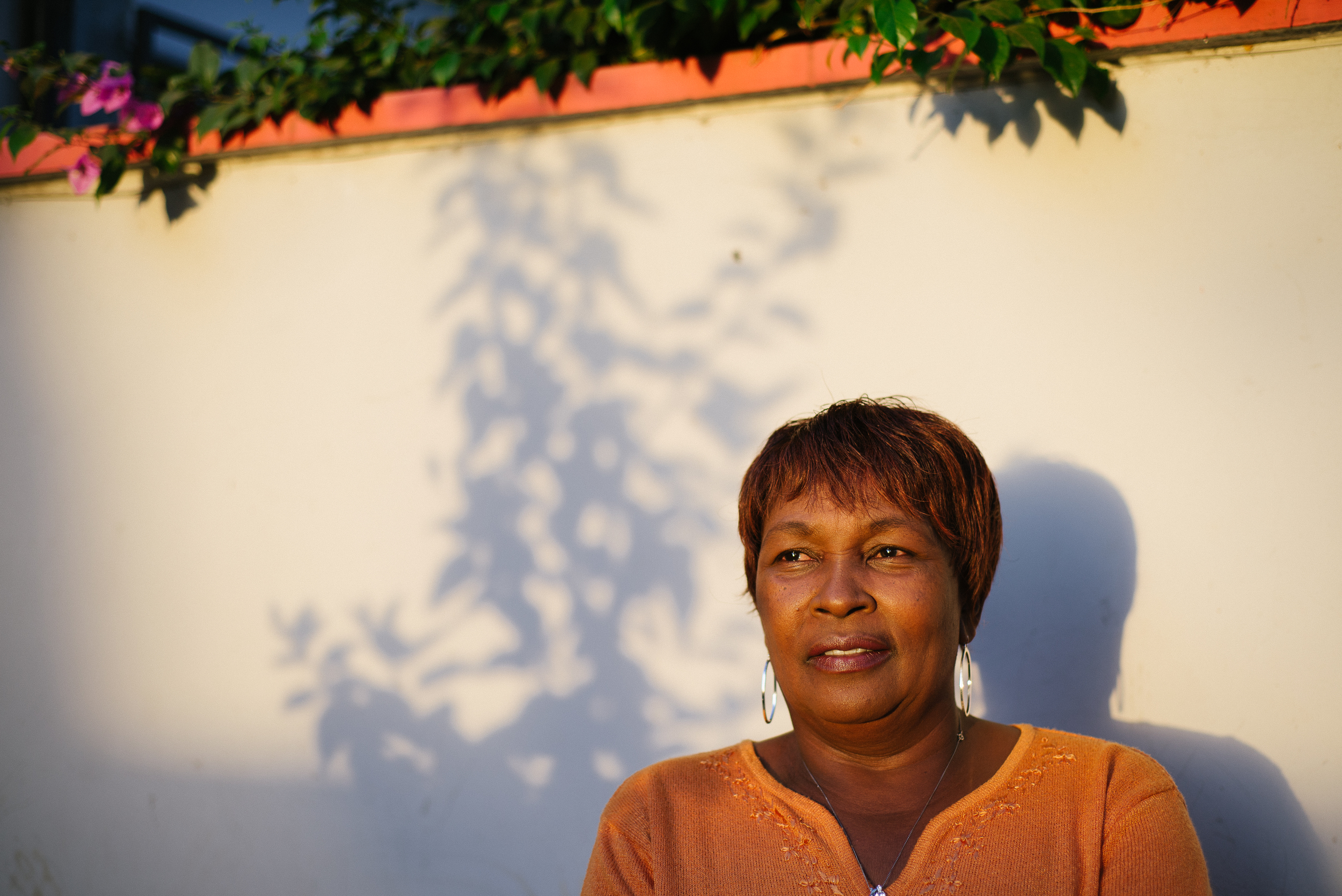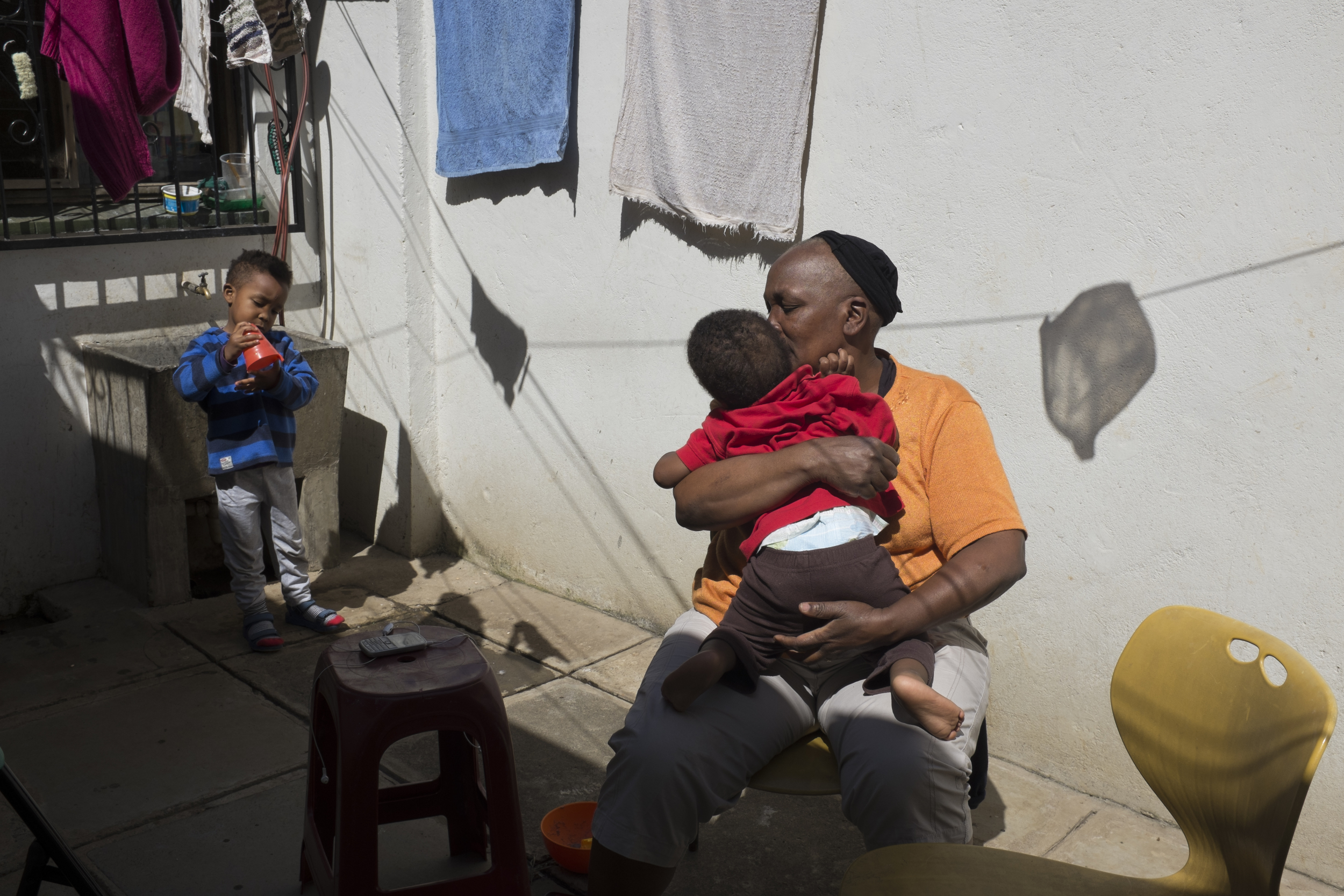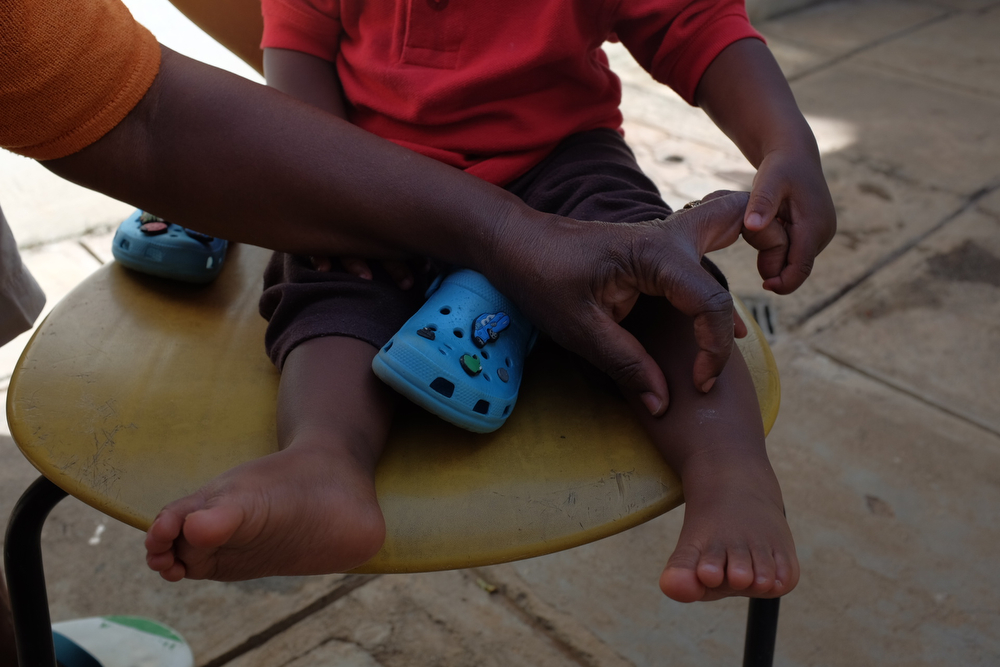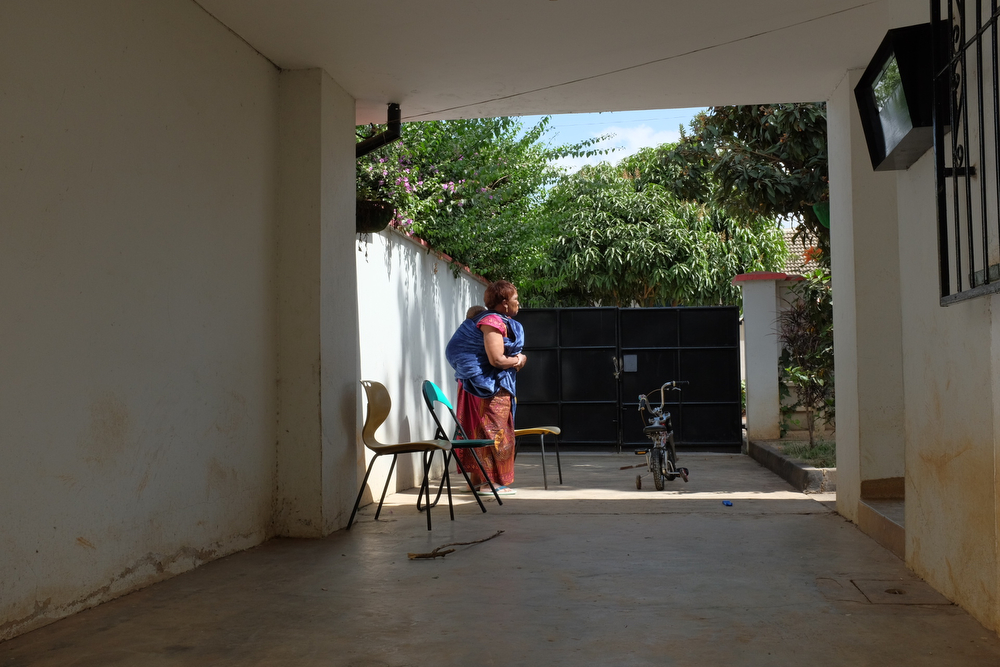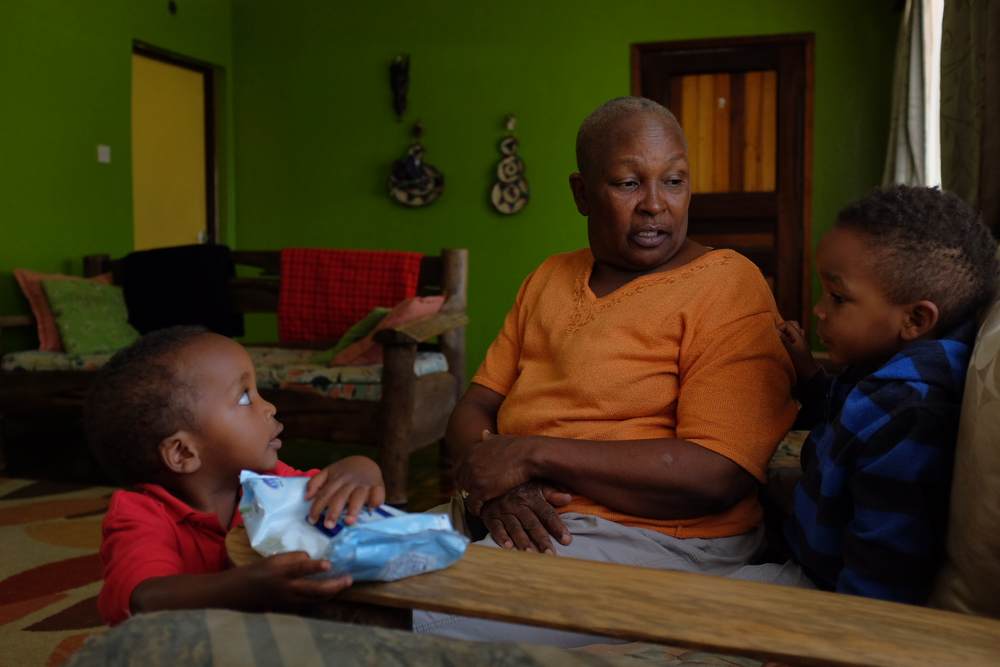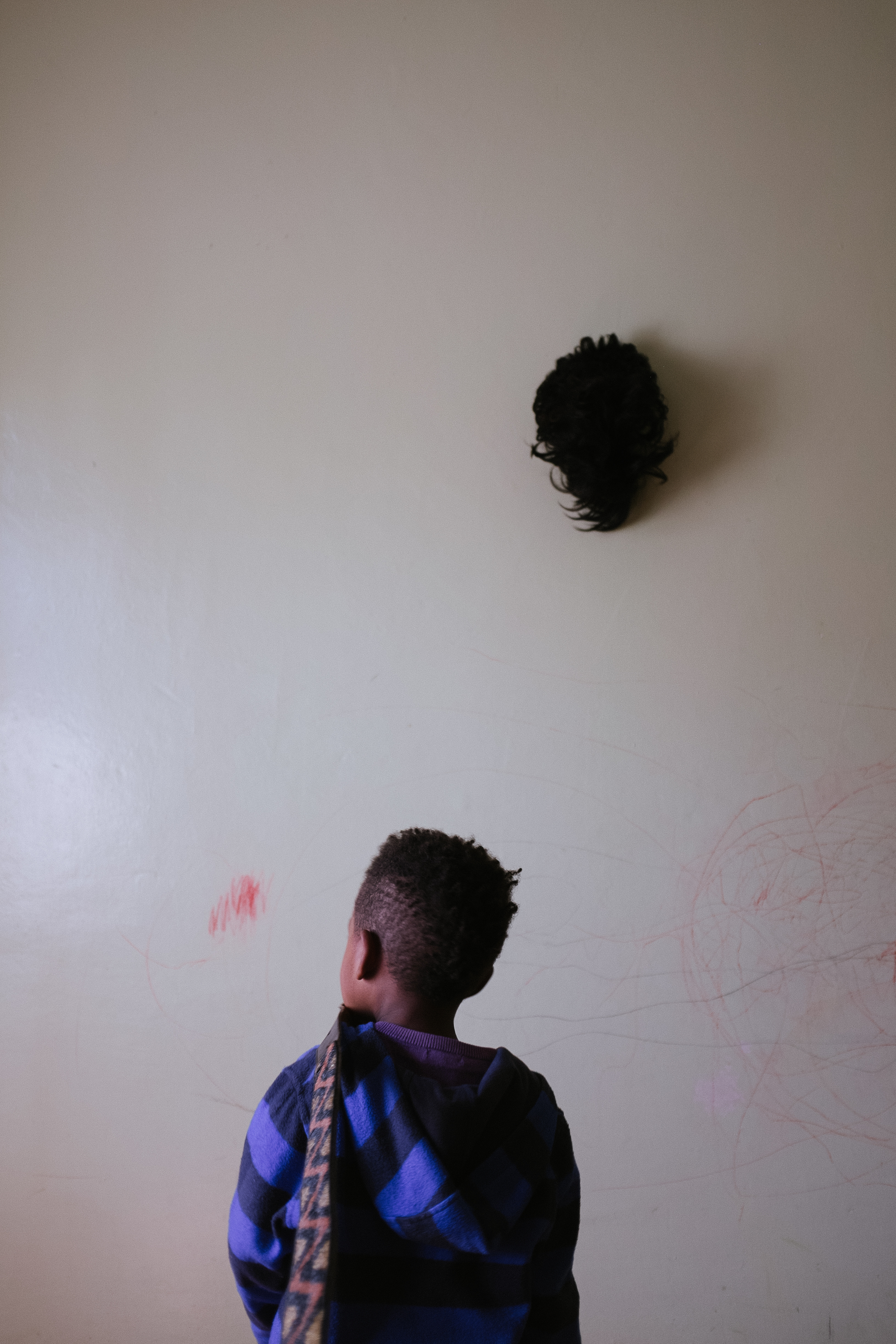Nyambura
by Gathoni Kinyanjui-Howard
Gathoni
My name is Gathoni. I am a photographer, a wife and a daughter. Chronic illness is no stranger to my family. My grandmother died from renal failure, my uncle from brain cancer, my grandfathers from deep vein thrombosis and diabetes-related complications, respectively. More recently, my mum was diagnosed with the early stages of diabetes and my Aunt Lily (Nyambura) survived breast cancer.
In coming to understand palliative care and its role in Kenya’s health system, the biggest challenge faced by many of the patients we talked to was the stigma of illness, that once someone is diagnosed with a disease such as cancer or diabetes, the people around them, friends and family, treat the person as though they were already dead. Almost every single patient narrated how alone they felt and how the people around them would not ask about their illness or ask about their pain. I started to ask myself why this was and realized that I, too, avoided talking about disease and pain. On some level, it is a deeply ingrained cultural trait – we don’t talk about death or sickness because in doing so, we are calling the same for ourselves. Perhaps, instead of looking out, I should have been looking in, to my own reaction around pain and sickness and within my own family as well.
Nyambura
My name is Nyambura. I am a wife, a mother and a grandmother. I was born in Nairobi in Pumwani Hospital, the same hospital my mother worked in as a nurse. After high school, I was admitted to Kenyatta University to learn to become a teacher, but I had a special attraction to social work. So instead I joined the Kenya Institute of Administration with a focus on law. I became a paralegal and probation worker. I truly enjoyed my time there, I liked getting to know people, helping them and I liked that by helping one person, I was also helping their families and communities. After my studies, I was posted to Nakuru, which is around the time I met my husband, Nuthia. We eventually settled in Naivasha and had two children, a son and a daughter. I was kept quite busy by my work, traveling within the region. I also ended up keeping about 200 goats, We would have lots of barbecues and parties at my house. We had a good life.
Five years into our marriage, my husband had a road accident. He was 31 at the time, a major in the army. That was the beginning of another journey. The accident crushed his fourth vertebrae, making him a quadriplegic. The doctors and nurses didn’t give him very long to live, first giving him 24 hours, then 72 hours, then two weeks, and still he outlived their predictions. I met so many patients at the spinal injury clinic who had been abandoned by their families because the burden of caring for them was too great. I saw a lot of people die there helplessly, in great physical and emotional distress because even the nurses and doctors believed they were as good as dead. When my husband stayed with them, he got depressed because he thought the same would happen to him. I decided to take him away from the hospital and care for him myself. Once home, his old friends would visit, but with time, the visits became fewer. They had hope that he would get better and they could resume their lives, but they eventually abandoned him. We were left alone, a young family with me as the provider. Thank goodness for the goats, because overseeing their care became a kind of occupational therapy for him.
I eventually left the probation service and worked for a flower farm as the human resources manager and had my highest career achievement when I became the first female director of the Kenya Seed Company in 50 years. Automatically I became a women’s leader. Around that time, the post election violence broke out and because of my position, I did a lot of work with women’s rights and would travel round the country, placing children in homes and relocating families that had been displaced. I remember attending this big, international conference and giving a powerful speech. It brought the whole hall to tears and even Graca Machel got up and hugged me and the crowd gave me a standing ovation! Out of this I got a medal, my title is actually HSC Lily Nyambura Githiiyi, and I have a certificate signed by the president. I’ve had such good experiences.
In 2007, I started having excruciating pain in my right shoulder. I went from doctor to doctor and was diagnosed with sciatica. However, at the same time, I discovered a lump in my breast. Through my work with women, I had facilitated several cancer screening clinics so I knew and regularly performed self-examinations. I told this to my gynecologist, but he reassured me that it wasn't a concern and advised me to focus on therapy for my shoulder. However, having lost a brother to cancer, I knew not to disregard the lump. A friend of mine who had survived breast cancer referred me to an oncologist at Nairobi Hospital [a private hospital]. They did a biopsy right away and the tumor was confirmed to be malignant. I had stage two breast cancer. Right away the doctor took action and performed a mastectomy. I went through eight courses of chemotherapy and 25 rounds of radiotherapy.
Gathoni
At this time, I knew that my aunt had breast cancer. It wasn’t something we talked about openly within my family, and we really didn't talk to her about it. It was the topic we all avoided and somehow, in ignoring the elephant in the room, we also started to avoid my aunt. Perhaps in avoiding her, we could get away from tough conversations, such as the possibility of death, the likelihood that we too could get sick but mostly, her pain. Powerless in the face of her illness, not knowing the appropriate thing to do or say, we isolated her.
Nyambura
I had already faced isolation when my husband became a quadriplegic. The same situation was playing itself out again. At first there was concern, people would visit, but with time, as the disease took its toll, I found myself increasingly isolated. No one would ask me how I felt or if I needed help. All they saw was cancer, not Nyambura. When I walked into a room, everyone would go silent, like they were waiting for a bomb to go off.
Rumors started to spread in my community, that I had cancer because I was HIV positive. My ostracization became complete, no one wanted to associate with me. I even wished that I had HIV, because you can live a long, productive life with HIV. Chemo and radiation made me so ill, I couldn’t eat and all my hair fell out. I would wear big dresses because my body would swell up because it retained so much fluid.
I consider myself lucky because I had good health insurance. My immediate and aggressive treatment was a success and I took myself off the chemo medication last year. I still go for regular check ups and so far, I have been cancer free.
Even today, no one asks me about the time I was sick. I wish my family would ask how I am. I’d like to talk to my nieces about breast cancer and talk to them about how important it is to get screened regularly. We discovered my brother’s tumor when it was too late, but it wasn’t too late for me.
My life never went back to normal, I hardly see those friends from back then; the stigma remains.
The greatest joys in my life are my grandchildren. To them, I’m simply cucu, their grandmother. My days revolve around taking care of them, playing with them. Their favorite place to play is actually my room. I live with my daughter and still take care of my husband, although we had to move him to long-term hospital care because he got sick, and I wasn't able to take care of him as I was ill as well. It’s been 30 years since his accident.
I’m a farmer and a business person, working to make sure I have enough money to take care of myself in my old age and to even leave something for my children so they don’t have to work as hard as me.
Gathoni
This project gave me a way to finally talk with my aunt about her illness. I truly regret not having talked to her about the cancer or even not giving her the care and support she needed.
Perhaps if we start talking about cancer or any illness at home, we wouldn’t have so many people dying. Caught early, cancer need not be fatal. Acknowledging illness and pain could be the first step in creating awareness of disease, early detection and even palliative care. Caring for patients and alleviating their physical and emotional pain at home could be the start of the holistic treatment of patients with chronic and debilitating illnesses, when we see a person in their entirety and not just as their disease.
For myself and for those around me, I’m now willing to talk about illness and to ask simple questions such as ‘How do you feel? and ‘How can I help?’. If care begins at home, perhaps it can make it into our health system as well.

